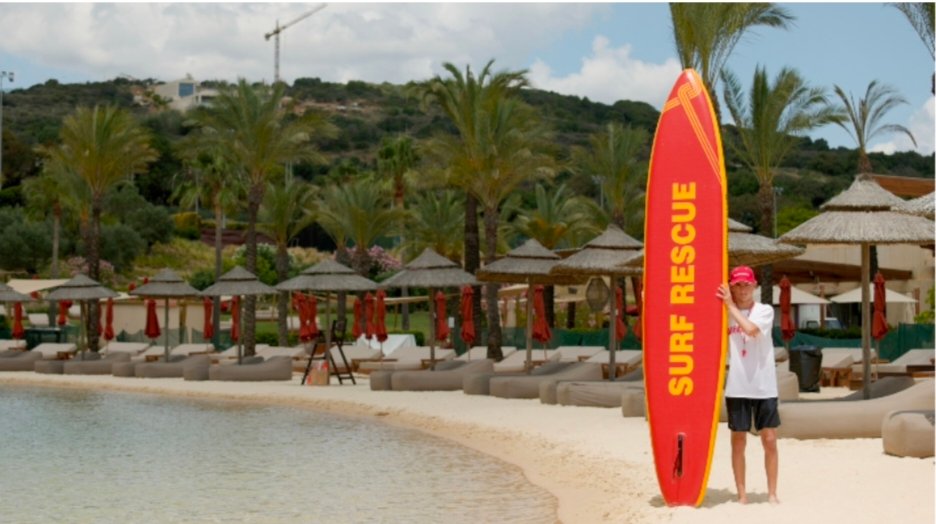Lifeguards play a crucial role in ensuring the safety of people at beaches, pools, and water parks. Their expertise goes past basically monitoring swimmers; it incorporates a large number of skills, knowledge, and preparedness that can save lives.
This article explores the different parts of a lifeguard’s expertise, including their training, basic skills, and the impact they have on public safety.
Understanding Lifeguard Training
Lifeguard training is a thorough cycle intended to outfit people with the vital skills and knowledge to answer effectively in emergencies. This training regularly incorporates a mix of classroom guidance and useful exercises, covering points, for example, water rescue techniques, first aid, and CPR. Lifeguard courses give members a strong groundwork in perceiving potential hazards, evaluating chances, and answering episodes swiftly.
Notwithstanding physical training, lifeguards find out about communication skills and how to work as a feature of a group. Effective communication is critical, particularly during emergencies when clear and succinct directions can have a significant effect. Numerous organizations offer lifeguard courses that attention on fostering these essential skills, ensuring that lifeguards are good to go for any circumstance they might confront.
Key Skills of Lifeguards
Water Rescue Techniques
Perhaps of the most basic expertise lifeguards secure is the ability to perform effective water rescues. This incorporates learning different techniques to reach and help people in distress. Lifeguards are trained to utilize rescue sheets, tubes, and other buoyancy gadgets to help those in a difficult situation.
They likewise practice situations including different sorts of emergencies, for example, a swimmer encountering squeezing, alarm, or suffocating. By mastering these skills, lifeguards can answer rapidly and without hesitation to any circumstance, limiting the gamble of serious injury or demise.
First Aid and CPR
Along with the techniques, lifeguards are also trained in first aid and CPR. This knowledge is crucial, as it empowers them to give immediate attention to harmed or distressed people until professional medical assistance shows up.
Lifeguards figure out how to survey wounds, apply bandages, and perform life-saving techniques, like chest compressions and rescue breaths. By joining these skills with their rescue training, lifeguards are equipped to deal with a great many emergencies, from minor wounds to life-compromising circumstances.
Vigilance and Situational Awareness
A lifeguard’s ability to stay careful and aware of their environmental elements is essential for ensuring safety at water facilities. Lifeguards are trained to check the water continuously, searching for any indications of distress among swimmers. This requires a sharp feeling of perception and the ability to identify potential hazards, like packed areas or unsafe swimming conditions.
Lifeguards should likewise know about environmental elements, for example, weather changes, that could influence safety. This degree of situational awareness is a basic part of their expertise and forestalls accidents before they happen.
The Impact of Lifeguards on Public Safety
Lifeguards play a critical role in advancing public safety at water-related venues. Their expertise forestalls accidents as well as imparts trust in the public. When individuals know that qualified lifeguards are available, they are more prone to participate in water activities unafraid. This positive impact can prompt expanded cooperation in swimming, which thusly advances generally speaking health and fitness.
Moreover, lifeguards frequently take part in public education endeavors, showing swimmers water safety, suffocating avoidance, and the significance of following rules and guidelines. Through these drives, they assist with encouraging a culture of safety in their networks, engaging people to pursue informed choices while enjoying water activities.
Proceeding with Education and Lifeguard courses
Lifeguarding is definitely not a one-time certification; it requires progressing training and education to stay current with the most recent techniques and best practices. Numerous organizations offer high level lifeguard courses to assist lifeguards with improving their abilities and extend their knowledge.
These courses cover points like high level rescue techniques, concentrated first aid, and, surprisingly, mental health awareness, ensuring lifeguards are completely ready for any circumstance.
People keen on seeking after a career as a lifeguard or improving their skills can look for “lifeguard courses near me” to track down local training opportunities. Numerous community centers, swimming facilities, and aquatic organizations give these essential courses, making it available for those hoping to join this honorable profession.
Final Word: The Lifeguard’s Role in Water Safety
In rundown, lifeguards are profoundly trained professionals whose expertise envelops a scope of basic skills, from water rescue techniques to basic medical assistance. Their vigilance, situational awareness, and ability to answer effectively to emergencies are fundamental in ensuring the safety of swimmers and forestalling accidents. By participating in continuous education through American lifeguard courses, they keep up with their skills and stay ready for any circumstance.
Organizations like the American Lifeguard Association play a significant role in giving exhaustive training projects hoping for lifeguards, ensuring they are equipped with the knowledge and skills important to succeed in their roles. Whether you are keen on becoming a lifeguard or basically trying to dive deeper into water safety, the expertise of lifeguards stays an important resource for any community.



